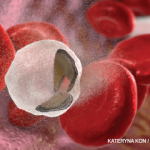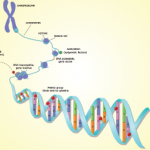
On a recent cold, clear morning, as I was navigating my way to work through the congested streets of the Longwood Medical Area, I caught the tail end of an ad on National Public Radio promising great quality care for patients with all types of arthritis. I was mildly surprised and maybe just a little bit disappointed to hear that my hospital was the sponsor. That may sound odd, but the ad stirred up some not-so-fond memories of prior advertising campaigns. These efforts unleashed a torrent of visits from patients with a wide array of difficult-to-treat musculoskeletal complaints. They shared some common themes; for many, their symptoms were refractory to treatment and their diagnoses remained vague. Understandably, these patients were dissatisfied with their prior medical care. Yet my visit did not change how they felt.

There was a sense of disappointment that few, if any, new, useful suggestions were offered. I felt sorry for letting these patients down. That is why the ad struck me with fear and trepidation. Can I really help any of these people? Would they feel frustrated about having to deal with costly insurance copayments, the need take time off of work and travel to Boston? I became deeply pessimistic about the worthiness of this whole revenue-generating exercise.
Medical advertising is pretty big business. In the first six months of 2011, advertising by American hospitals, clinics, and medical centers exceeded $700 million.1 Some of these ads can be clever. Perhaps they were penned by the ad men from the television series Mad Men. The Lenox Hill Hospital in New York City boasted how, “we had cardiologists before the city even had arteries.” In Everett, Wash., The Group Health Cooperative erected billboards that exclaimed: “Helpful for when your wife yells, ‘What is wrong with you?’ ” In contrast, our hospital’s staid punch lines were not worthy of repetition. They adhered to the dictum of David Ogilvy, one of the gurus of modern advertising, who once remarked: “What you say in advertising is more important than how you say it.” Despite the bland marketing message, once again we witnessed a surge in patient visits.
But this time, things seemed different. It was not that they presented with esoteric diseases worthy of presentation at a clinical–pathologic conference. These patients’ illnesses represented a cross-section of the conditions that most rheumatologists face on a daily basis. Yes, many of them left with the same advice that others had previously offered them.



